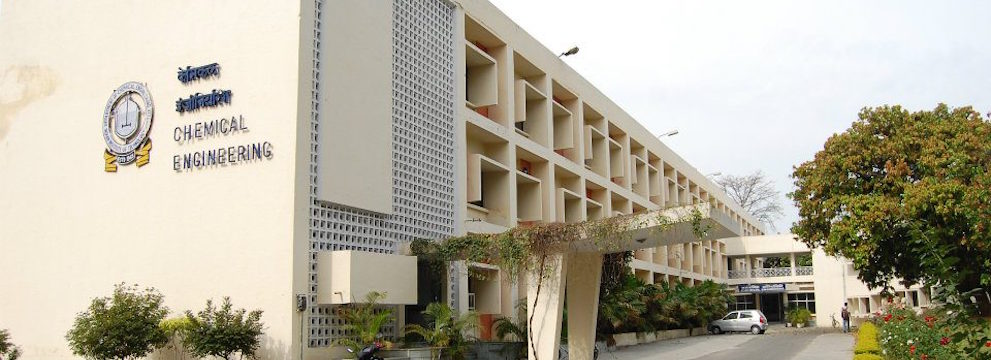
Chemical Engineering
The department of chemical engineering is by far the most controversial dept at IITR. From misogyny to meting out of mass punishments, it has made headlines for all the wrong reasons.
On the brighter side, no discussion of the chemical department can be complete without the mention of what it is that makes it so popular: the females. For long this department has been the frontrunner in diminishing this grave imbalance in the Roorkee ecosystem. However the writers should include here an advice from their own personal distasteful experiences that might prove in handy to the (male) bearer(s) of this guide. Sending the females cheeky messages or poking them on online social media without knowing them personally might not be such a good idea. It’ll usually end up with you getting reported or blocked or both.
Chemical Engineering, although hinting an obvious and close relevance to Chemistry by its very name, bears no relation to it than sharing its basic concepts. A clearer answer to what Chemical Engineering is, lies at the end of a four year long journey. And we hope this preamble helps your wagon start off just right.
Like in most branches, it turns out that the core subjects contribute a major chunk to the grades. Thus, a list of the important courses in Chemical Engineering goes like this – Engineering Management, Chemical Reaction Engineering, Transport Phenomena, Chemical Engineering Thermodynamics, Chemical Process Principles, Chemical Engineering Equipment Design, Fluid Mechanics, Mechanical Operations.
The last two on the list, though not counted as ‘core’ subjects, complete the curriculum and help in understanding the fundamentals in this field of engineering.
Speaking in terms of contact hours, a chemical engineer works for about 26 hours a week, lab hours included. Generally, one lab engages you every semester.
The workload, to a great deal, depends on an individual’s deal with the clock. Every branch or course, for that matter, brings you a lot to deal with, but a smart schedule will never let you experience academic overload. Not in this branch for sure!
This branch offers diverse research areas and fields to follow. Interning at the foreign universities serves as both a trend and a motivation for the researchers at IITR.
Some of the many diverse areas open to research for a chemical engineer are Thermodynamics and molecular computations, Catalysis and Reaction Engineering, Systems design and Engineering, Transport Processes, Biological Engineering, Materials, Polymers, Surfaces and Structures, and Energy and Environmental Engineering.
Internship opportunities
The industrial heavyweights like ITC, Schlum and Reliance offer the best internship opportunities. The likes of companies such as Shree Cement invite interns through CPT. The rest are accomodated in the petroleum refineries owned by IOCL, NFL etc.
Employers, Job opportunities and Pay scale
A greater percentage of the students get non-core jobs.
The core followers find major employers in gas and oil extraction, oil refining, nuclear and power generation and other process industries such as pharmaceuticals. A good number is absorbed by industries such as food & drinks, toiletries, pulp and paper, polymer and textile. ITC, Relaince, Schlum, SHELL, in particular, harbor the dream jobs to the students pursuing the field.
Certain job profiles (apart from a Chemical Engineer, of course ) that relate directly to this field are: Energy engineer, Petroleum engineer, Product/process development scientist, Analytical chemist, Energy manager, Manufacturing engineer, Materials engineer, Mining engineer, Production manager, Quality manager etc.
The paycheck of a Chemical Engineering graduate reads, on an average, 8L per annum.
Co-scholastic activities
The professors eagerly back students willing to take up innovative projects. A trend of venturing ahead with new ideas has, however, not been established in the department yet.
Available options include taking up simple/fun projects or experiments, such as testing the efficiency of pumping and motor systems installed in the labs, or studying the performance of air conditioning or condenser systems in the department buildings. In addition to being simple and interesting, these projects help students find a practical front to their learning.
Technical fests, in the institute and in other colleges, hold competitions such as Chem-e-car, prototype, etc. They put to test the chemical engineers’ practical skills and knowledge at an inter-college level. Similar competitions held by groups such as IIChe evaluate your analytical and problem-solving skill-set.
All in all, this giant of a field offers a great deal to explore. The opportunities are enormous and ever-increasing, waiting to be grabbed by fresh minds.